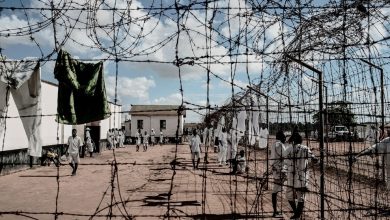What happened to the funds?
The announcement, early this week, by the Ministry of Agriculture, Irrigation and Water Development, that government’s had scrapped off the seed component of the Farm Inputs Subsidy Programme (Fisp) hardly came as surprise to some of us.
For starters, it followed a disturbing narrative which government seems to have adopted of late. It has become government’s trusted modus operandi to wait until the last minute before delivering the shocking news. And it all started about a month ago with the Ministry of Education, Science and Technology when it announced a raft of changes—with the 2015/2016 academic year in full swing—which have created more confusion than they hoped to clear.
The manner in which the education ministry announced the changes would lead one to believe they had been living under a rock all the while and only woke up at the last minute to realise they had changes to effect.
The education ministry revised secondary school fees, abolished the Junior Certificate of Education (JCE) examinations, abolished scholarships for students in public universities and introduced fees in teachers training colleges—all while the academic year was in full swing—and with immediate effect. Talk of planning!
It is not as if the ministry only realised in September that cost-sharing would be the most sustainable way of delivering quality education. I would rate them as daft if they didn’t realise all this while that no university student buys books or stationery with their allowances. If it is not spent on cosmetics, it is wasted on alcohol—or some such frivolity.
Secondly, the media already reported over a month ago that donors had pulled the plug on Fisp after learning that the government had, as has become fashionable these days, mismanaged funds after resources for this year’s programme were used last season. And true to form, the government assured people there was nothing to panic because it would find a solution. By Monday, it did not have any solution and people—from beneficiaries to seed companies—panicked.
It is not as if donors ambushed government with its decision. As early as last year, government knew donors would not be forthcoming with their funding this year. In not as many words, Minister of Agriculture, Irrigation and Water Development Allan Chiyembekeza conceded that they had frontloaded the funds for a good cause as a lot of work needed to be done in the seed sector. What that work entailed, we have no idea and whether it would translate into less misery for farmers is very unlikely. It may have been used for a good cause—or it was just cashgated. After all, this is Malawi where we don’t seem to be learning from our own mistakes. Or are we?
Golden warming charger
Attending the University of Malawi’s Golden Jubilee celebrations at the College of Medicine last Saturday, I must say I was somewhat embarrassed by two items. First, it escaped someone’s attention that the institution could not have been in existence in 1465 and that 1465 from 2015 hardly makes a golden jubilee, which is what was emblazoned on its logo.
Second, Unima made an attempt to award people who have made a difference to the institution since it was established (my name was missing, so don’t ask!). What was embarrassing about this aspect was that they awarded Mixon Falueke and Fungai Mbewe for inventing a pedal charger and a ceramic food warmer respectively.
Make no mistake, I have nothing against their achievements; they deserve the plaudits going their way. Both inventions are, in no doubt, important in an impoverished society that is Malawi. But, come on, folks, are those the best things students in the University have invented in the last 50 years? If they are, is it a measure of how bad the university is (which I am reluctant to believe in) or that they only recognised innovations in recent memory, probably because they lost track of the others? n


